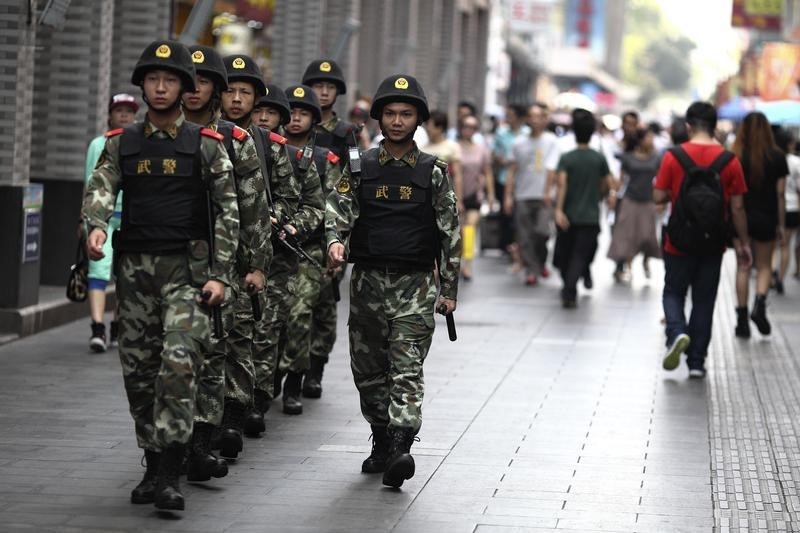BEIJING (Reuters) - China must crack down "harshly and quickly" on cases involving terror attacks, national security and social stability in its restive region of Xinjiang, the country's top judge said, in comments likely to further worry rights groups and exiles.
Resource-rich Xinjiang is strategically located on the borders of Central Asia, India, Pakistan and Afghanistan, and China has shown no sign of loosening its control.
Hundreds of people have been killed in the western region in the past two years, most in violence between the Muslim Uighur people who call Xinjiang home and ethnic majority Han Chinese. The government has also blamed attacks in other parts of China, including Beijing, on Islamist militants from Xinjiang.
Zhou Qiang, head of the Supreme People's Court, told a meeting on legal assistance to Xinjiang that courts there would get help in handling cases to ensure long-lasting stability, state news agency Xinhua said late on Thursday.
"(We must) increase the level of guidance for trials, and guide Xinjiang courts to harshly and quickly hear terror crime cases like those which threaten national security, damage ethnic unity and affect social stability," Zhou said.
Cases involving race and religion must also be handled "appropriately", he added.
Dozens of people have been sentenced to death in Xinjiang in the past year or so, over participation in terror attacks.
Zhou's remarks will fuel the concerns of rights groups and exiles about lack of due process in the handling of such trials, which are often completed in a single day and may feature several defendants at once.

Exiles and rights groups have long doubted the existence of a cohesive Islamist militant group operating in Xinjiang, and say that China's harsh controls on the region's culture and religion are to blame for the violence. China denies this.
(Reporting by Ben Blanchard; Editing by Clarence Fernandez)